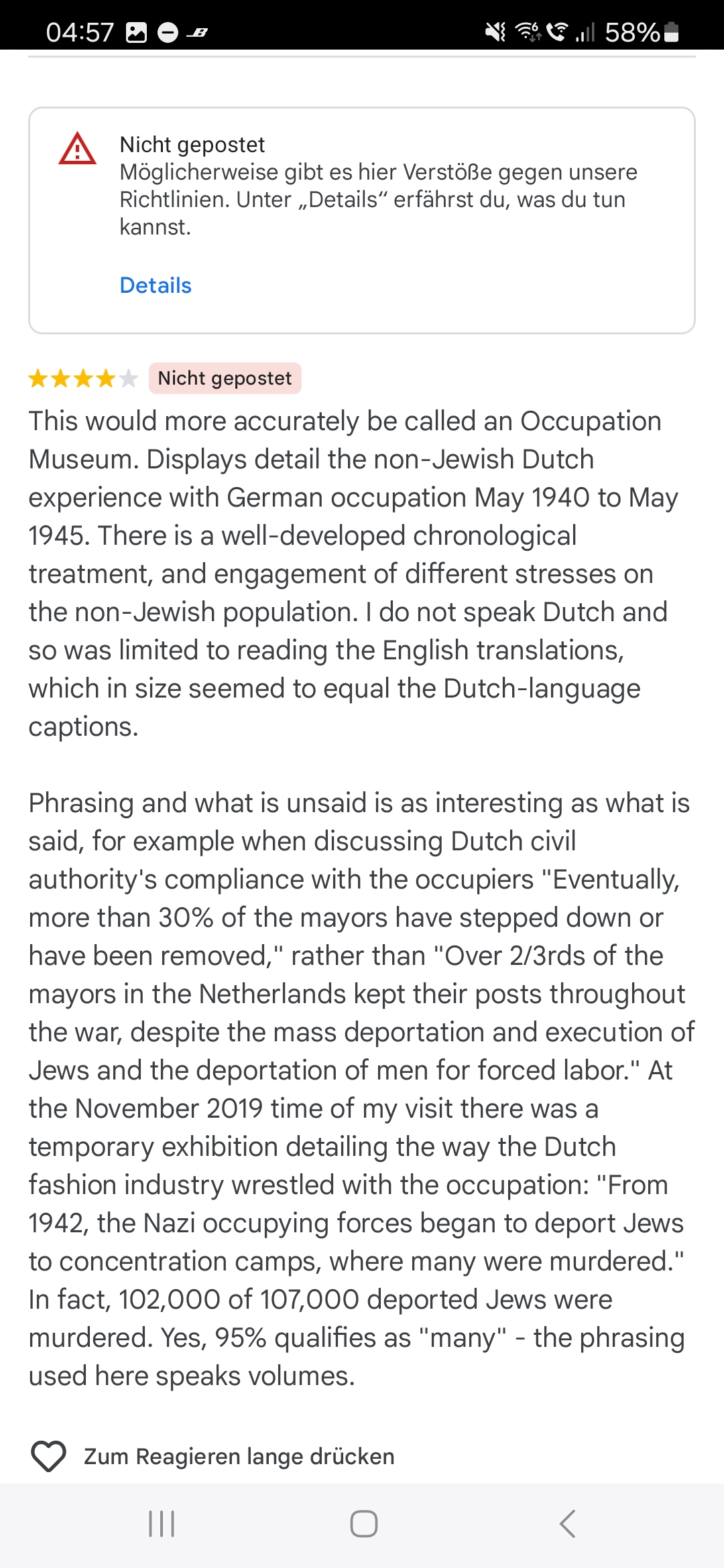-
Neueste Beiträge
Archive
- Juli 2025
- Juni 2025
- Mai 2025
- April 2025
- März 2025
- Februar 2025
- Januar 2025
- Dezember 2024
- November 2024
- Oktober 2024
- September 2024
- August 2024
- Juli 2024
- Juni 2024
- Mai 2024
- April 2024
- März 2024
- Februar 2024
- Januar 2024
- Dezember 2023
- November 2023
- Oktober 2023
- September 2023
- August 2023
- Juli 2023
- Juni 2023
- Mai 2023
- April 2023
- März 2023
- Februar 2023
- Januar 2023
- Dezember 2022
- November 2022
- Oktober 2022
- September 2022
- August 2022
- Juli 2022
- Juni 2022
- Mai 2022
- April 2022
- März 2022
- Februar 2022
- Januar 2022
- Dezember 2021
- November 2021
- Oktober 2021
- September 2021
- August 2021
- Juli 2021
- Juni 2021
- Mai 2021
- April 2021
- März 2021
- Februar 2021
- Januar 2021
- Dezember 2020
- November 2020
- Oktober 2020
- September 2020
- August 2020
- Juli 2020
- Juni 2020
- Mai 2020
- April 2020
- März 2020
- Februar 2020
- Januar 2020
- Dezember 2019
- November 2019
- Oktober 2019
- September 2019
- August 2019
- Juli 2019
- Juni 2019
- Mai 2019
- April 2019
- März 2019
- Februar 2019
- Januar 2019
- Dezember 2018
- November 2018
- Oktober 2018
- September 2018
- August 2018
- Juli 2018
- Juni 2018
- Mai 2018
- April 2018
- März 2018
- Februar 2018
- Januar 2018
- Dezember 2017
- November 2017
- Oktober 2017
- September 2017
- August 2017
- Juni 2017
- Mai 2017
- April 2017
- März 2017
- Februar 2017
- Januar 2017
- Dezember 2016
- November 2016
- Oktober 2016
- September 2016
- August 2016
- Juli 2016
- Juni 2016
- Mai 2016
- April 2016
- März 2016
- Februar 2016
- Januar 2016
- Dezember 2015
- November 2015
- Oktober 2015
- August 2015
- Juli 2015
- Juni 2015
- April 2015
- Januar 2015
- Dezember 2014
- November 2014
- Oktober 2014
- September 2014
- Juli 2014
- Juni 2014
- Mai 2014
- April 2014
Elon Musk and Donald Trump Stayin‘ Alive
Kommentare deaktiviert für Elon Musk and Donald Trump Stayin‘ Alive
Guideline violations
Several of my Google Maps reviews which stood for years now have a status of „not posted“ with the notice that they violate Google guidelines.
You will notice what these have in common, of course. They are from my 2019 trip. They stood for years.


Kommentare deaktiviert für Guideline violations
It was Iran. Gaza is the fault of Iran.
Kommentare deaktiviert für It was Iran. Gaza is the fault of Iran.
Support for Gaza and opposition to a genocide as personal political views
The Melbourne Symphony Orchestra has said it made “an error” in cancelling the performance of an acclaimed pianist who dedicated a piece to slain journalists in Gaza.
Jayson Gillham was scheduled to perform Mozart and Brahms at the Melbourne Town Hall on Thursday with the MSO, but was removed from the event after the orchestra said he made “a series of introductory remarks” that were “beyond the remit of his contract” at a previous performance.
…
“Over the last 10 months, Israel has killed more than one hundred Palestinian journalists,” Gillham told the crowd on Sunday, according to his management.
“A number of these have been targeted assassinations of prominent journalists as they were travelling in marked press vehicles or wearing their press jackets. The killing of journalists is a war crime in international law, and it is done in an effort to prevent the documentation and broadcasting of war crimes to the world.
“In addition to the role of journalists who bear witness, the word witness in Arabic is shaheed, which also means martyr.”
Israel’s offensive in Gaza has become the deadliest conflict for journalists in recent history, with the US-based Committee to Protect Journalists recording at least 113 killings of Palestinian journalists and media workers in the war in Gaza.
Kommentare deaktiviert für Support for Gaza and opposition to a genocide as personal political views
Police-directed foreign policy
That concentration camps were ultimately provided for the same groups in all countries, even though there were considerable differences in the treatment of their inmates, was all the more characteristic as the selection of the groups was left exclusively to the initiative of the totalitarian regimes: if the Nazis put a person in a concentration camp and if he made a successful escape, say, to Holland, the Dutch would put him in an internment camp. Thus, long before the outbreak of the war the police in a number of Western countries, under the pretext of ’national security,‘ had on their own initiative established close connections with the Gestapo and the GPU, so that one might say there existed an independent foreign policy of the police. This police-directed foreign policy functioned quite independently of the official governments; the relations between the Gestapo and the French police were never more cordial than at the time of Léon Blum’s popular-front government, which was guided by a decidedly anti-German policy. Contrary to the governments, the various police organizations were never overburdened with ‚prejudices‘ against any totalitarian regime; the information and denunciations received from GPU agents were just as welcome to them as those from Fascist or Gestapo agents. They knew about the eminent role of the police apparatus in all totalitarian regimes, they knew about its elevated social status and political importance, and they never bothered to conceal their sympathies. That the Nazis eventually met with so disgracefully little resistance from the police in the countries they occupied, and that they were able to organize terror as much as they did with the assistance of these local police forces, was due at least in part to the powerful position which the police had achieved over the years in their unrestricted and arbitrary domination of stateless and refugees.
Ω Ω Ω
For the nation-state cannot exist once its principle of equality before the law has broken down. Without this legal equality, which originally was destined to replace the older laws and orders of the feudal society, the nation dissolves into an anarchic mass of over- and underprivileged individuals. Laws that are not equal for all revert to rights and privileges, something contradictory to the very nature of nation-states. The clearer the proof of their inability to treat stateless people as legal persons and the greater the extension of arbitrary rule by police decree, the more difficult it is for states to resist the temptation to deprive all citizens of legal status and rule them with an omnipotent police.
—Hannah Arendt, The Origins of Totalitarianism, (Great Britain: Penguin, 2017), 377-379.
Kommentare deaktiviert für Police-directed foreign policy
Crime as (temporary) naturalization
The best criterion by which to decide whether someone has been forced outside the pale of the law is to ask if he would benefit by committing a crime. If a small burglary is likely to improve his legal position, at least temporarily, one may be sure he has been deprived of human rights. For then a criminal offense becomes the best opportunity to regain some kind of human equality, even if it be as a recognized exception to the norm. The one important fact is that this exception is provided for by law. As a criminal even a stateless person will not be treated worse than another criminal, that is, he will be treated like everybody else. Only as an offender against the law can he gain protection from it. As long as his trial and his sentence last, he will be safe from that arbitrary police rule against which there are no lawyers and no appeals. The same man who was in jail yesterday because of his mere presence in this world, who had no rights whatever and lived under threat of deportation, or who was dispatched without sentence and without trial to some kind of internment because he had tried to work and make a living, may become almost a full-fledged citizen because of a little theft. Even if he is penniless he can now get a lawyer, complain about his jailers, and he will be listened to respectfully. He is no longer the scum of the earth but important enough to be informed of all the details of the law under which he will be tried. He has become a respectable person.
—Hannah Arendt, The Origins of Totalitarianism, (Great Britain: Penguin, 2017), 374-375.
Kommentare deaktiviert für Crime as (temporary) naturalization
Verfassungsschutz: Wie der Geheimdienst Politik macht
Wolfgang Streeck, reviewing Ronen Steinke’s »Verfassungsschutz: Wie der Geheimdienst Politik macht«:
Maaßen made public the notes for a speech he had given at a secret international meeting of domestic intelligence services. In them he claimed that the SPD, Merkel’s coalition partner, had ‘radical leftists’ in its ranks. The SPD demanded Maaßen’s dismissal, and in November 2018 he was sacked.
His successor, Thomas Haldenwang, was also a CDU member, though of a more Merkelian sort. According to Steinke, in January 2021 he was about to publish a report announcing that his office had found the AfD suspect of anti-constitutional ‘extremism’ and was placing it under formal observation (which would allow intelligence methods such as wiretapping and infiltration by undercover agents), when he was called to Seehofer’s office. The draft report, which Seehofer had been sent, had cited a prominent AfD politician saying ‘Islam does not belong to Germany.’ Seehofer’s problem was that he and other leading CSU members had repeatedly used those same words.
…
In the summer of 2023 Friedrich Merz, the new CDU leader and a long-standing opponent of Merkel, ended the battle between the CDU and CSU, and declared, as Merkel had, that the AfD should be seen as an enemy rather than as a potential coalition partner. Facing regional elections in September 2024 in three eastern states where the AfD was leading the CDU in the polls, as well as a federal election a year later, Merz bet on what was effectively a grand coalition of ‘all democratic parties’ united in a ‘Kampf gegen Rechts’, a battle against the right. (This was not without risk: quite a few of the CDU’s fellow combatants consider Merz and his party to be more on the other side than on their own, while many of Merz’s supporters would prefer a Kampf gegen Links.) This battle involved erecting an institutional, political and social ‘firewall’ against the AfD, with the aim of excluding it from elections – not quite getting it banned by the constitutional court, but with much the same effect.
…
As long as a party is judged to possess a covert substructure that might allow it to attempt the overthrow of the state – as might have been the case with the SRP and the DKP – the argument for banning it is relatively easy to make. There was no suspicion that the NPD had such a capacity, however; or that the AfD does.
For some time, the four Staatsparteien (the CDU/CSU, Greens, SPD and Free Democrats), which describe themselves as ‘democratic’ as opposed to ‘populist’ or ‘extremist’, have co-operated to exclude AfD MPs from parliamentary business as far as legally possible, for instance by keeping them out of key parliamentary committees. There have also been various forms of social ostracism: for example, the management of the 2024 Berlin Film Festival, at the behest of the state government, disinvited a number of AfD politicians from its opening ceremony, for which all parties in the Berlin parliament traditionally receive free tickets. In March the Bundestag football team announced that AfD MPs and their staff would no longer be allowed to play. But since the Kampf gegen Rechts began, support for the AfD has remained fairly steady, around 15 per cent. (In early July, two weeks after the European elections, the AfD came second in a nationwide poll, with 16.9 per cent, one percentage point above its result in the elections and close to its highest ever poll result of 17.2 per cent in 2023. The AfD was followed by the SPD on 14.6 per cent. As a rule of thumb, what the battle against the right removes from the party’s support in West Germany is balanced by what it adds in the East.) Earlier this year, the AfD reported that its membership has exceeded forty thousand, an increase of more than 60 per cent on 2023.
Whereas the BfV used to operate more or less behind the scenes, under Haldenwang and the SPD’s Nancy Faeser, minister of the interior since 2021, public announcements on investigations into AfD-related right-wing activity have become common. Today the BfV and its Länder equivalents inform the public of their work not only in yearly reports, but also in regular press conferences. Their labelling of enemies of the constitution can be challenged in administrative courts, but it takes time for cases to be heard. Decisions on the status of potentially ‘extremist’ individuals and organisations are made in camera, without those under suspicion being interviewed. Despite its past disasters, Verfassungsschutz agencies are still highly respected by a German public eager for reassurance. Once someone is placed under observation, declared ‘suspect’ or classified as a ‘proven extremist’, the media always notes this status.
…
Today, the BfV and the sixteen Landesämter form a central pillar of an institutional regime that bridges state and civil society, and aims at the manufacture of political consent and what has recently come to be called ‘social cohesion’. Underlying this is the peculiar readiness of German elites to carry out orders even before they are given, which means that they may not have to be given at all. Visitors from countries with a tradition of accepting or even respecting eccentricity, such as the UK, France and Italy, or from a country as fundamentally disorderly as the United States, tend to be struck by the monolithic appearance of German politics and society, the way everything seems to fall in line with everything else. This is enabled by the interplay between institutions, formal and informal, and by a culture that perceives dissent as selfish and as a threat to social and political unity (it’s also seen as pointless). A recent example is the wave of accusations of antisemitism against protesters, many of them from outside Germany, who have voiced their horror over the Israeli destruction of Gazan society.
Kommentare deaktiviert für Verfassungsschutz: Wie der Geheimdienst Politik macht



